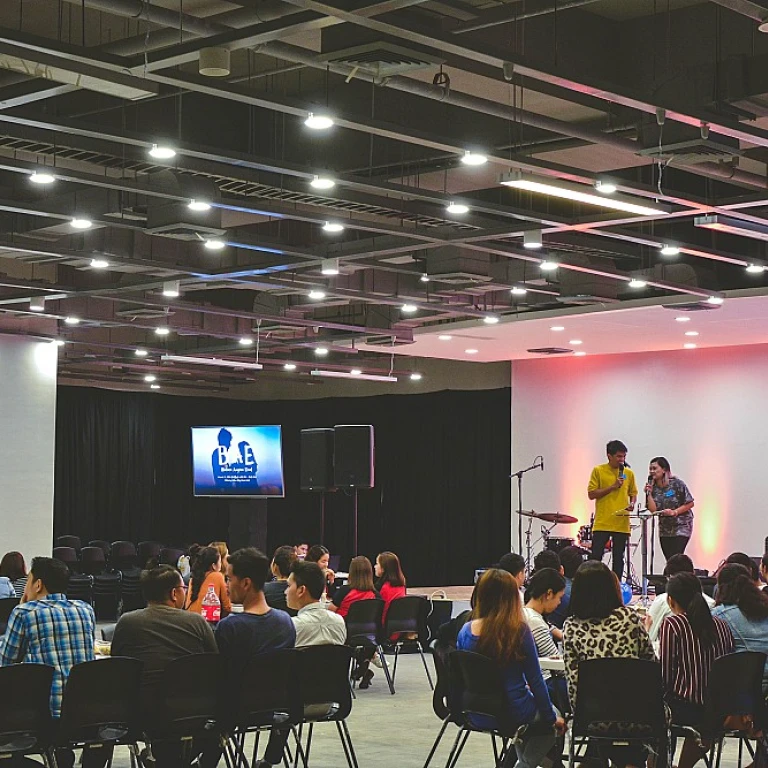
Understanding the basics of AI in human resources
What is Artificial Intelligence in HR?
Artificial intelligence (AI) in human resources refers to the use of advanced algorithms and machine learning to automate, enhance, and support HR functions. From recruitment to performance management, AI tools are reshaping how organizations manage their most valuable resource: people. Many companies are exploring AI to answer frequently asked questions about efficiency, employee engagement, and the future of work.
How Does AI Change the Way We Work in HR?
AI-driven solutions are increasingly present in daily HR operations. For example, AI can help screen candidates by analyzing resumes and matching skills to job requirements. This saves time for HR teams and allows them to focus on more strategic tasks, such as employee relations and company culture. AI-powered management systems can also support performance management by providing data-driven insights into employee performance and engagement.
- Recruitment: AI can automate interview scheduling, suggest interview questions, and even provide sample answers for consistency.
- Employee Experience: AI chatbots answer common questions employees have about benefits, resources, and company policies.
- Management: AI tools help track employee engagement and support team members with personalized learning recommendations.
Why Are Companies Adopting AI in Human Resources?
Organizations are turning to AI for both short term and long term benefits. In the short term, AI can reduce repetitive work, improve the accuracy of candidate selection, and streamline resources management. Over the long term, AI supports business growth by enabling better workforce planning, enhancing the work environment, and supporting continuous employee development. These changes not only benefit the HR team but also improve the overall organization and company culture.
Concrete Examples of AI in Action
Consider a management system that uses AI to monitor employee engagement and flag potential issues before they impact team performance. Or, think about how AI can help answer frequently asked questions during the interview process, ensuring candidates have a consistent experience. These are just a few examples of how AI is transforming human resource practices.
For a deeper understanding of how artificial intelligence is transforming human capital management, you can explore this resource on AI in human capital management.
Addressing privacy and data security concerns
Building Trust Through Data Protection
One of the most frequently asked questions about artificial intelligence in human resources is how companies can ensure privacy and data security. When organizations use AI for recruitment, performance management, or employee engagement, they handle sensitive information about candidates and employees. This raises concerns about who can access the data, how it is stored, and what measures are in place to prevent misuse.
- Transparency: Employees and candidates want to know what data is collected and how it will be used. Clear communication helps build trust and supports a positive company culture.
- Access Controls: Limiting access to personal data to only those who need it for their work is a key part of any human resource management system. This protects both the organization and its team members.
- Compliance: Companies must follow data protection laws, such as GDPR, to avoid legal risks and maintain employee relations. Regular audits and compliance checks are essential.
For example, when using AI to screen candidates, a company should anonymize applications to reduce bias and protect privacy. This is a concrete example of how technology can support ethical hiring practices while respecting individual rights.
Addressing Common Concerns in the Workplace
Another common question is whether AI will change the work environment or impact job security. While AI can automate repetitive tasks, it also creates opportunities for employees to focus on more strategic work. This shift can benefit both short term productivity and long term employee engagement, provided that the transition is managed carefully.
Organizations should offer training and upskilling resources to help their teams adapt. This supports a culture of continuous learning and prepares employees for new roles that may emerge as AI becomes more integrated into human resources management.
Practical Steps for Secure AI Integration
To answer questions about the safe use of AI in HR, companies can:
- Implement strong data encryption and regular security updates
- Provide clear guidelines on data usage and privacy for all team members
- Use third-party audits to validate the effectiveness of security measures
For more insights on how a data validation manager can transform AI in human resources, you can read this detailed overview from the AIHR Institute.
By addressing these questions and providing concrete examples, organizations can build a secure, trustworthy, and effective AI-powered human resources environment.
Evaluating AI’s impact on recruitment processes
How AI is Changing Recruitment Dynamics
Artificial intelligence is reshaping the way companies approach recruitment, from sourcing candidates to conducting interviews. Many organizations now use AI-driven tools to screen resumes, match skills to job requirements, and even suggest interview questions. This shift raises frequently asked questions about fairness, transparency, and the impact on company culture.
- Speed and Efficiency: AI can process thousands of applications in a fraction of the time it would take a human resource team. This means recruiters can focus more on engaging with top candidates and less on manual screening.
- Reducing Bias: When implemented thoughtfully, AI can help minimize unconscious bias by focusing on skills and experience rather than personal details. However, it’s important to regularly audit algorithms to ensure fairness and avoid reinforcing existing biases.
- Personalized Candidate Experience: AI-powered chatbots and automated communication keep candidates informed throughout the process, improving the overall work environment and employee engagement even before hiring.
Common Questions and Sample Answers
HR professionals and candidates often have questions about how AI affects recruitment. Here are some concrete examples:
| Questions Interview | Example Answer |
|---|---|
| Will AI replace human recruiters? | AI supports recruiters by automating repetitive tasks, but human judgment remains crucial for assessing company culture fit and managing employee relations. |
| How does AI select candidates? | AI analyzes job descriptions and candidate profiles to match skills, experience, and qualifications, helping to shortlist the best candidates for interviews. |
| Can AI improve diversity in hiring? | Yes, when designed with inclusion in mind. For more on this, see our guide to understanding DEI terms in artificial intelligence for human resources. |
Benefits and Challenges for Organizations
Integrating AI into recruitment brings both short term and long term benefits. In the short term, businesses see faster hiring and improved management system efficiency. Over the long term, AI can enhance performance management, support team members, and help build a more inclusive organization. However, it’s essential to balance automation with the human touch to maintain a positive work environment and strong employee relations.
As AI continues to evolve, HR teams must stay informed and adapt their resources management strategies to ensure technology serves both the business and its people.
Managing employee experience with AI
Enhancing Employee Experience Through AI
AI is transforming how companies approach employee experience, from onboarding to performance management. Many organizations now use AI-powered resources to personalize the work environment and support team members throughout their journey. This shift brings up several frequently asked questions about the impact of AI on human resources management and employee relations.
- How does AI support employee engagement? AI-driven tools can analyze feedback, monitor engagement levels, and suggest targeted actions to improve morale. For example, a management system might flag when employees show signs of disengagement, allowing HR teams to intervene early. This proactive approach benefits both short term productivity and long term retention.
- Will AI change company culture? AI can help reinforce company values by ensuring consistent communication and fair performance management. However, it is essential for human resource professionals to balance automation with a personal touch, maintaining a positive work environment where employees feel valued.
- What are some concrete examples of AI in employee experience? Chatbots answer common questions about benefits or policies, freeing up HR teams for more complex tasks. AI can also personalize training recommendations, helping employees develop new skills relevant to their job and the organization’s needs. These resources management tools streamline processes and support continuous learning.
Addressing Concerns and Building Trust
Employees often have questions about how AI will affect their roles and privacy. Transparent communication is key. HR teams should provide clear sample answers to questions interview candidates or current employees may have, such as:
- "Will AI monitor my work all the time?" Example answer: AI is used to support performance management and identify trends, not to micromanage individual employees. Data is handled securely and used to benefit both the business and its people.
- "How does AI impact job security?" Example answer: While AI can automate repetitive tasks, it also creates opportunities for employees to focus on higher-value work and develop new skills. The goal is to enhance, not replace, human contributions.
By addressing these questions and providing concrete examples, organizations can foster trust and ensure that AI integration leads to a better employee experience. As with any change, ongoing dialogue and training are crucial for successful adoption and long term benefits for both employees and the company.
Training and upskilling HR teams for AI integration
Building AI Skills Within HR Teams
Integrating artificial intelligence into human resources is not just about adopting new technology. It’s about ensuring your team members have the right skills and mindset to work alongside AI tools. Many companies frequently ask how to prepare their HR professionals for this change. The answer lies in a combination of training, upskilling, and fostering a culture of continuous learning.
- Identify skill gaps: Start by assessing your team’s current capabilities. What questions do they have about AI? Which areas of the human resource management system are most impacted? This helps prioritize training topics, from data analysis to ethical use of AI in employee relations.
- Offer targeted training: Provide resources that focus on both technical and soft skills. For example, workshops on AI-driven recruitment tools or webinars on managing employee engagement with automation. Sample answer: "Our company introduced monthly sessions on AI basics and practical applications in performance management."
- Encourage hands-on experience: Allow team members to experiment with AI tools in a safe environment. This could include running mock interview questions or using AI to analyze candidate data. Concrete examples help employees see the benefits and limitations of these technologies.
- Promote collaboration: Foster a work environment where HR professionals can share questions, answers, and best practices. Peer learning accelerates skill development and helps address frequently asked questions about AI’s role in the organization.
- Monitor progress: Use metrics to track how well the team adapts to AI. Are employees using the new tools effectively? Is there an improvement in job satisfaction or company culture? Regular feedback ensures that training remains relevant in both the short term and long term.
Upskilling HR teams is an ongoing process. As AI continues to evolve, so will the questions and challenges faced by human resources. By investing in training and supporting your team, your business can maximize the benefits of AI while maintaining a strong focus on employee experience and organizational performance.
Measuring the effectiveness of AI in HR
Key Metrics for Assessing AI in Human Resources
When companies introduce artificial intelligence into their human resources management system, measuring its effectiveness becomes a top priority. HR leaders and team members often have questions about which indicators matter most and how to interpret the results. The right approach involves looking at both short term and long term outcomes, always with a focus on employee experience and business goals.
- Recruitment Efficiency: Track time-to-hire, cost-per-hire, and candidate quality. AI can help filter candidates and answer frequently asked interview questions, but it’s important to see if these tools actually improve the job matching process.
- Employee Engagement: Use surveys and feedback tools to monitor changes in employee engagement and satisfaction. AI-driven resources can support employee relations, but the human touch remains essential for a positive work environment.
- Diversity and Inclusion: Analyze hiring and promotion data to ensure AI supports a diverse and inclusive company culture. Regularly review algorithms for bias and fairness, as discussed in earlier sections about privacy and data security.
- Performance Management: Evaluate how AI tools impact performance reviews, goal setting, and feedback. Do employees and managers feel the system is fair and transparent? Concrete examples from your organization can highlight benefits or areas for change.
- Training and Upskilling: Measure participation rates and outcomes from AI-driven learning programs. Are team members developing the skills needed for future work, and do they feel supported by the resources provided?
Practical Steps for Ongoing Evaluation
To answer questions about the value of AI in HR, organizations should establish regular review cycles. This includes:
- Setting clear goals for each AI initiative
- Collecting feedback from employees, candidates, and HR professionals
- Comparing results to baseline data before AI implementation
- Adjusting strategies based on what works and what doesn’t
For example, if an AI-powered interview tool is used, gather sample answers and questions from both candidates and interviewers. Analyze whether the tool saves time, improves the quality of hires, and aligns with the company’s values. This approach helps human resources teams make informed decisions and demonstrate the benefits of AI to the wider business.
Balancing Technology and Human Insight
While AI can transform resources management, it’s crucial to remember that technology should enhance—not replace—the human element. Regularly reviewing performance, employee engagement, and company culture ensures that AI supports both the organization’s objectives and the well-being of its employees. By focusing on real-world data and concrete examples, HR teams can answer frequently asked questions and build trust in AI-driven change.













